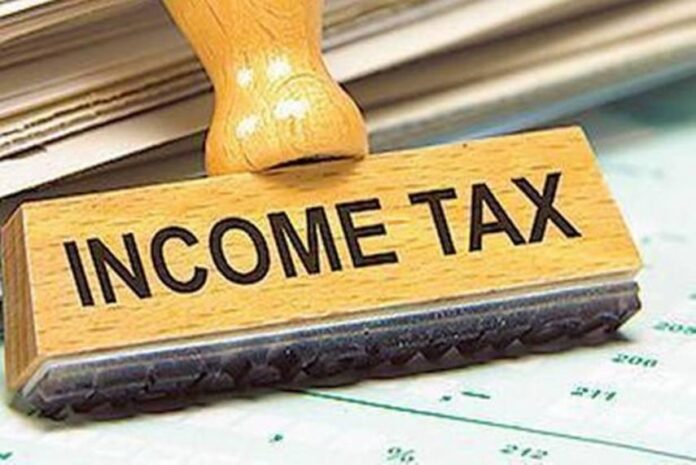Section 111A of the Income Tax Act addresses the taxation of short-term capital gains. Depending on how long equity shares are held, the profits from stock investments are classified as long-term or short-term capital gains. You must be aware of the tax regulations under Section 111A if you have invested in short-term equity funds.
What exactly is section 111A of the income tax act? (H2)
A person who has capital gains on short-term capital assets, as defined by Section 2 (42A) of the Income Tax Act of 1961, is required under Section 111A to file a tax at a rate of 15%. This section includes listed securities that are subject to the Securities Transaction Tax, such as listed equity shares, listed units of business trusts and listed mutual funds.
Short-term capital gains, or STCG, are claimed to exist for shareholders who have held equity shares for a year or less. According to the requirements of the IT Act of 1961, income from stocks falls into one of the following two categories:
- Short-term capital gains under Section 111A
- Short-term capital gains except for Section 111A
Non-Indian residents are not eligible for the advantages of the slabs (NRIs). Section 111A does not offer the deductions under Section VI-A.
The Section 111A of the Income Tax Act is applicable to short-term capital gains (H3)
- Short-term capital gains are gains on equity shares that have been held for less than a year and are listed on a recognized stock exchange.
- STCG while selling a trust’s units.
- Transferring stock through a reputable stock exchange.
- On the sale of stock shares or funds, STT, or Securities Transaction Tax, is applicable.
- Through the selling of shares, business trust units, or mutual fund units via an IFSC-based stock market, where foreign money is utilized (even if there is no STT).
Section 111A Exceptions
- Shares listed on the recognized stock exchange in an International Financial Service Center (IFSC) are an exception to Section 111A since no Shares Transaction Tax (STT) is applied to the transfer of such securities.
- Foreign institutional investors (FII) are also excluded because there is no need to provide proof that the securities they own are capital assets.
- If the taxpayer is able to demonstrate that the securities he owns are capital assets rather than stock in trade.
Examples of STCG covered by Section 111A (H4)
- STCG on sales of equity shares of a listed company made through a recognized exchange and subject to STT
- STCG on sale of units of business trust
- STCG on sales of units of equity-oriented mutual funds made through a recognized stock exchange and subject to STT
- STCG may be due upon the sale of equity shares, units of business trusts, or units of equity-oriented mutual funds through an authorized stock exchange housed within an IFSC (international financial service center), even though STT is not liable
STCG under Section 111A is adjusted against the Basic Exemption Limit (H5)
The shortfall in your basic exemption limit can be offset by your short-term capital gains, long-term capital gains on equity investments, and long-term capital gains on investments other than equity investments if you are an Indian resident as defined by the Income Tax Act and your total income after various deductions is less than the basic exemption limit.
Examples-
Suresh has a short-term capital gain of Rs 4 lakh from the sale of equity shares and a taxable salary income of just Rs 1 lakh. He also receives Rs 50,000 from outside sources. Determine the relevant STCG Tax.
The total taxable wage must be increased by an additional 50,000 rupees ($50) to reach Rs 1.5 lakh. The short-term capital gain on the sale of shares might be reduced to the extent that there is a deficiency of Rs 1 lakh in the absorption of Ajay’s basic income tax exemption limit.
A short-term capital gain of Rs 3 lakh (Rs 4 lakh – Rs 1 lakh) will be subject to tax at a flat rate of 15%.
Sumit sells mutual fund shares on the National Stock Exchange, with 65% of the corpus invested in equities. Sumit is eligible for short-term capital gains after a holding period of 10 months for the investment. Such an investment option is covered by Section 111A, and STCG is subject to a 15% tax (with cess and surcharge).
Tips to Keep in Mind When Thinking About Section 111A of the Income Tax Act (H6)
You won’t owe any taxes if your earnings (adding STCG) are less than Rs. 2,50,000 after tax deductions. There will be no tax ramifications under section 111A.
15 percent STCG taxation is applicable when your income (including STCG) reaches Rs. 2,50,000. However, you are eligible for a tax rebate under Section 87A if your earnings are less than Rs. 5,00,000. A rebate of up to Rs. 12,500 is permitted under both the old and current tax regimes.
111A of the income tax act establishes a tax rate for short-term capital gains. To lessen your tax liability, you must be aware of the essential deductions made by the IT department. Investments in ELSS funds are eligible for a deduction of up to Rs. 1,50,000 under Section 80C.
